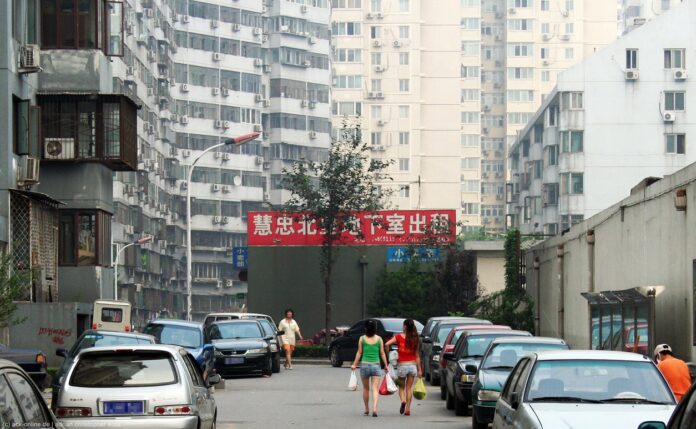The social-capitalism experimented in today China is bound to have reached its extreme conclusion. Should anyone accustomed to wealth give up, renouncing? Certainly, Xi Jinping is working hard. He endlessly insists on the topic of “Shared prosperity”, but who should share does not follow him.
The report between the state and the élites in the Land of the Dragon is always quite complicated. During the Imperial Epoch, the “mandarins” were nominated upon very severe competitions and they had to show absolute morality and loyalty to the state.
There were also the local lords, who ruled the regions to cope with the power of the inspectors of Beijing, and presented themselves to their own people as defenders from bureaucratic centralism.
However, they did not attack the state openly and behaved in a real ambiguous way (not too different from what used to happen in Europe). Then the imperial decadence followed as well as the civil war and later the communism that turned to upside down everything.
Rich Chinese don’t want to “share”
The “princes”, as the mass of the population names the Chinese billionaires, show themselves neither as very honest officials nor as protectors of their own people.
They have no legitimacy, they are much more corrupt and selfish than the old gentlemen; furthermore, they have no social basis. Greased thanks to the Western investment and fully aware of such situation, they try to resist Xi’s breakthrough by plotting inside the Party against the boss. It is an old story, which happened already in in Russia with the sudden expulsion of Khrushchev and then Gorbachev.
Xi is practicing heavy arrests and sentences. He is also trying to exasperate his power, by inserting his and at the same time planning the development of his country in a way allowing self-legitimization in relation to the dissatisfied masses. Therefore, he is launching leading nationalism and militarism extremely.
Capitalism and shared wealth are not conflicting
He and his group are playing a true challenge. Actually, it is quite easy to give power to plotting and corrupt élites to have their endorsement. However, it will not be simple to regain that power later.
It is as if he was walking in balance on a tightrope because, if you get into the capitalist logic, then you have to stick to its rules especially regarding low wages, on one side, and rich more and more rich, on the other. Military rhetoric, geopolitical bullying, the masked threats towards the neighbors are not decisive solutions. On the contrary, they push those who have somewhat experience in capitalism to show their muscles seriously.
A financial atomic bomb
For example, a few days ago, the “grandfather” Biden implicitly threatened Putin to declare not convertible the ruble with the dollar, or to put apart Russia from the international trading system, through the swift system. It would be some kind of financial atomic bomb.
If Beijing has ears to hear, pay attention to it. When you grow up in the shadow of a coin, if it changes, that is a real problem. This is the reason why the economists assisting Xi are theorizing the strange idea of a double monetary circulation. It would be as if you tried to avoid the disaster by regaining the autonomy for the internal economy by detaching it from foreign investments. Meanwhile, the ghost towns go on witnessing the mistakes around a sick and artificial growth.
________________________________________________________________________________
Il ruolo delle élites di oggi
L’esperimento social-capitalista della Cina contemporanea sembra arrivato a un collo di bottiglia strettissimo. Chi si è abituato alla ricchezza dovrebbe rinunciare a una parte di essa?
Sicuramente Xi Jinping ce la sta mettendo tutta. Sempre più spesso insiste sul tema della “prosperità condivisa”, ma chi dovrebbe condividere fa orecchie da mercante. Il rapporto fra lo Stato e le élites nel Paese del Dragone è sempre stato piuttosto complicato. In epoca imperiale i “mandarini”, cioè i funzionari statali, erano nominati a seguito di concorsi rigorosissimi e dovevano dare prova di moralità assoluta e fedeltà allo Stato. C’erano poi i signori locali, che governavano le regioni per fronteggiare il potere degli ispettori di Pechino, e si presentavano alla propria gente come difensori dal centralismo burocratico.
Tuttavia, queste élites non attaccavano frontalmente lo Stato mantenendo con esso un’ambigua alleanza, non molto diversamente da come avveniva in Europa. Poi vennero la decadenza imperiale, la guerra civile e il comunismo che cambiò le carte in tavola.
I ricchi cinesi non vogliono “condividere”
I “principi”, ovvero come vengono definiti dalla massa della popolazione i miliardari cinesi, non si presentano né come funzionari onestissimi, né come protettori della propria gente.
Non hanno alcuna legittimazione, sono molto più corrotti e individualisti dei vecchi signori e non hanno alcuna base sociale. Ingrassati all’ombra degli investimenti occidentali e pienamente coscienti della situazione, tentano di resistere alla svolta di Xi, tramando all’ interno del Partito contro il capo. È una storia che abbiamo già visto in Russia quando esautorarono dall’oggi al domani Kruscev e poi Gorbachev. Xi sta usando le maniere forti con arresti e pesantissime condanne. Sta tentando di rafforzare in maniera esasperata il suo potere, sia inserendo nella costituzione le sue teorie, sia prenotando il potere a vita, sia pianificando lo sviluppo del Paese per autolegittimarsi di fronte alle masse scontente, pompando nazionalismo e militarismo all’estremo.
Capitalismo e benessere condiviso non sono incompatibili
È una vera e propria sfida la sua (e del suo gruppo), perché dare potere in cambio di consenso a delle élites maneggione e corrotte è relativamente facile, ma toglierglielo dopo non lo è altrettanto. Possiamo pensare che cammini in equilibrio su una corda tesa perché se si entra nella logica capitalistica, poi bisogna stare alle sue regole: salari bassi e ricchi sempre più ricchi. La retorica militaresca, il bullismo geopolitico, le larvate minacce ai vicini non sortiscono effetti risolutivi. Anzi spingono chi del capitalismo ha ben altra esperienza a mostrare i muscoli sul serio.
Una bomba atomica finanziaria
Ad esempio nonno Biden qualche giorno fa ha minacciato larvatamente Putin di dichiarare non convertibile il rublo con il dollaro, o di escludere la Russia dal sistema degli scambi internazionali tramite il sistema swift. Sarebbe una specie di bomba atomica finanziaria.
Se Pechino ha orecchie per intendere, intenda. Quando si cresce all’ombra di una moneta, se essa si sposta si resta a cuocere sotto il sole. E per questo gli economisti che assistono Xi stanno teorizzando la strana idea della doppia circolazione monetaria. Come se si potesse evitare il disastro riconquistando l’autonomia dell’economia interna staccandola dagli investimenti esteri. Intanto le città fantasma stanno lì a testimoniare gli errori di una crescita malata e artificiale.








